Search
Did you mean: Copan?
Search Results

Image
The Seven Lucky Gods of Japan - Seven Deities, Countless Blessings
The Seven Lucky Gods of Japan (Shichifukujin) are a group of deities associated with prosperity, happiness, and longevity. Blending Shinto, Buddhist, Taoist, and even Hindu influences, they came together as a collective pantheon during Japan’s...
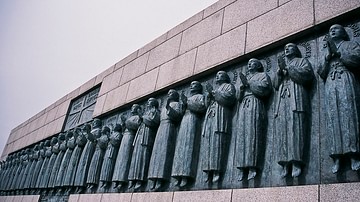
Image
Memorial of the 26 Martyrs of Japan in Nagasaki
Memorial of the 26 Martyrs of Japan in Nagasaki, who were executed for their Christian beliefs in 1597, after Japan had outlawed the religion. Canonised by the Catholic Church, the martyrs were tortured before their execution, with the event...

Definition
Potsdam Conference - When the WWII Allies Declared Japan Must Surrender
The Potsdam Conference, held from 17 July to 2 August 1945 in Potsdam in eastern Germany, decided how the Allies would deal with a defeated Germany and how they could best conduct the ongoing campaign against Japan as the Second World War...

Video
Introduction to the History of Ancient Japan
The History of Ancient Japan dates back to the fifteenth century BCE, and spans thousands of years until the beginning of the Medieval period in Japan. The Jōmon period was the first historical period of Japan, and the name Jōmon comes from...
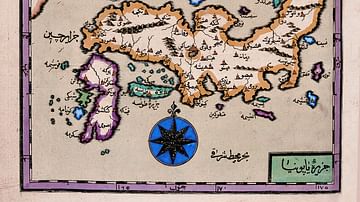
Image
Map of Japan by Katip Çelebi
Map of Japan by Katip Çelebi (d. 1657), geographer of the Ottoman Empire, in his famous geographic dictionary, Kitab-ı Cihannüma (View of the World).
Cambridge University Library.
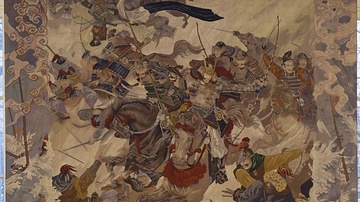
Image
The Mongol Invasion of Japan
"The Mongol Invasion" is a Japanese silk tapestry by Kawashima Jimbei II (Japanese, 1853 - 1910 CE), based on an oil painting by Morizumo Yugyo (1854 - 1927 CE). The painting depicts the Mongol Empire's failed invasions of Japan in in 1274...

Image
Mongol Invasion of Japan, 1281 CE
A detail showing the failed Mongol attack on the defensive walls of Hakata, Japan in 1281 CE. From the Mongol Scroll, aka the 'Illustrated Account of the Mongol Invasion of Japan.' Commissioned by Takezaki Suenaga, 1293 CE.

Image
Agata Shrine in Uji, Japan
The Agata were tribal units under the reign of the Yamato court (c. 300-650 CE), which held sway over western Japan. Particularly in the Nara and Kyoto areas, the agata played important political and ceremonial roles. The name of the Agata...
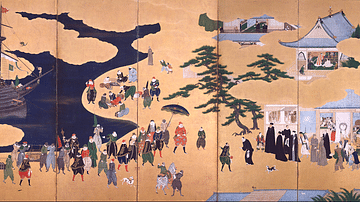
Image
The Portuguese in Japan
A Japanese painted screen by Kanō Naizen showing a Portuguese carrack ship and traders. The Portuguese controlled the trading port of Nagasaki from c. 1571 to 1639. (Kobe City Museum, Japan)
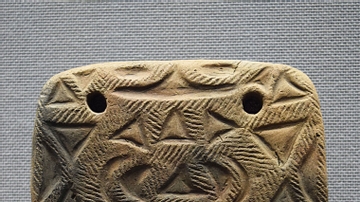
Image
Doban Clay Tablet from Japan
This doban or clay tablet is from the Fukuda Shell Mound in what is present-day Ibaraki prefecture, Japan. It dates from the Jomon period, between 1000-400 BCE. Important cultural property. (Tokyo National Museum)